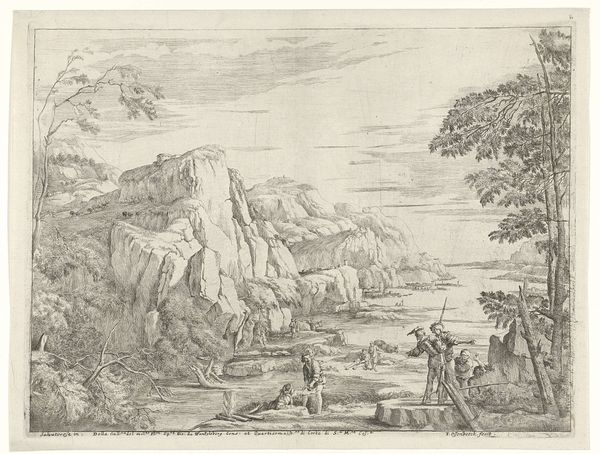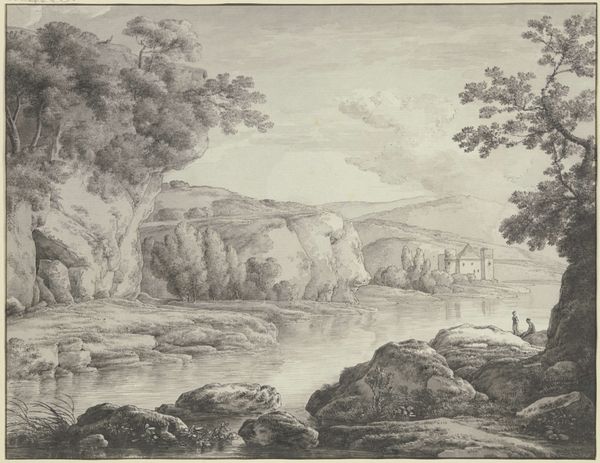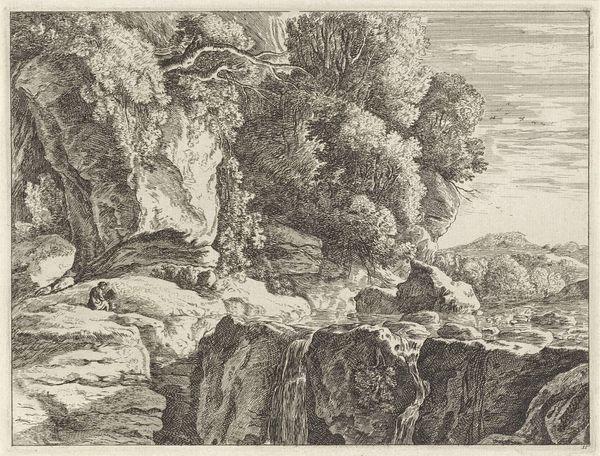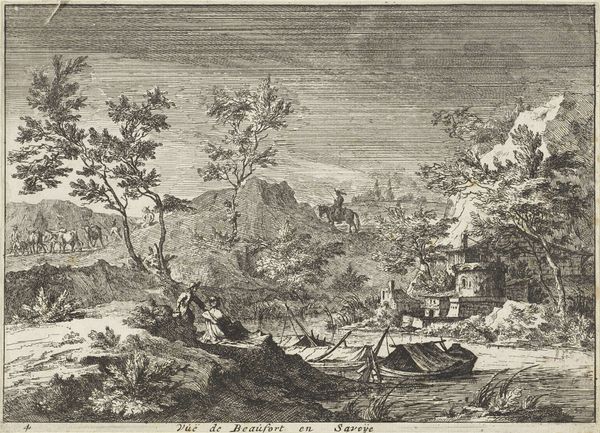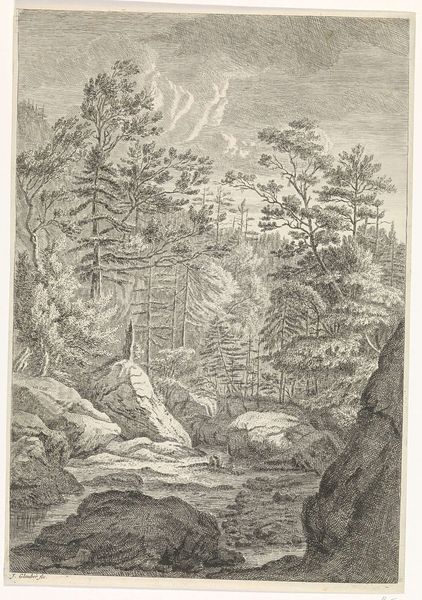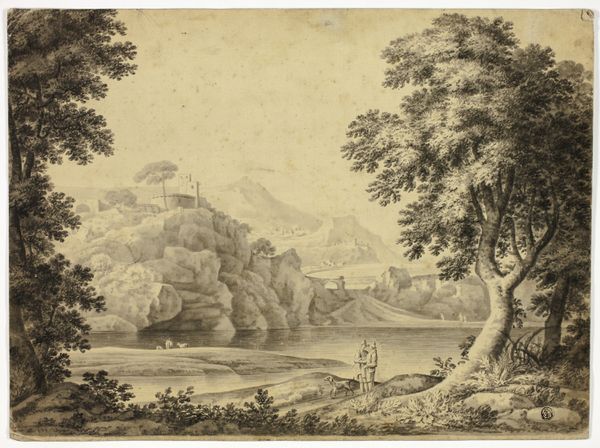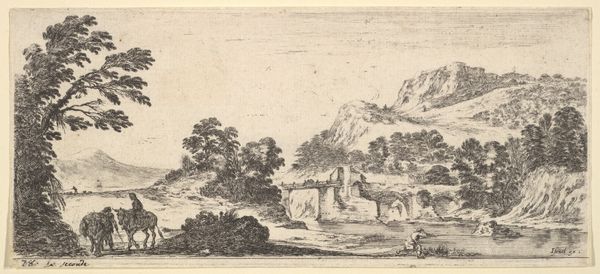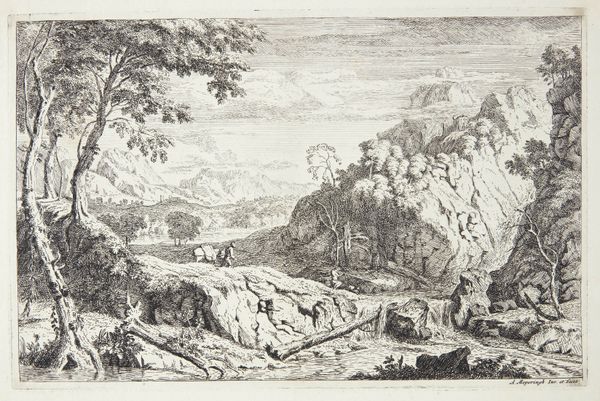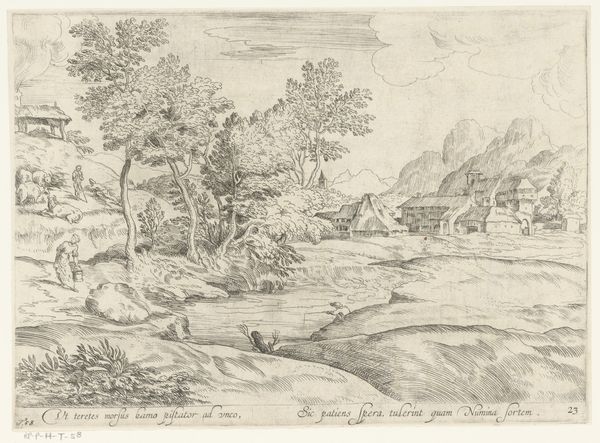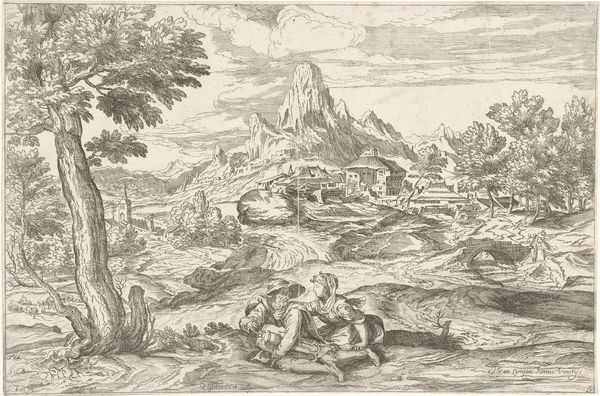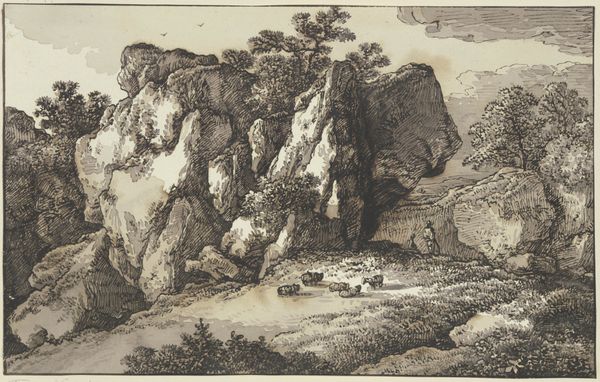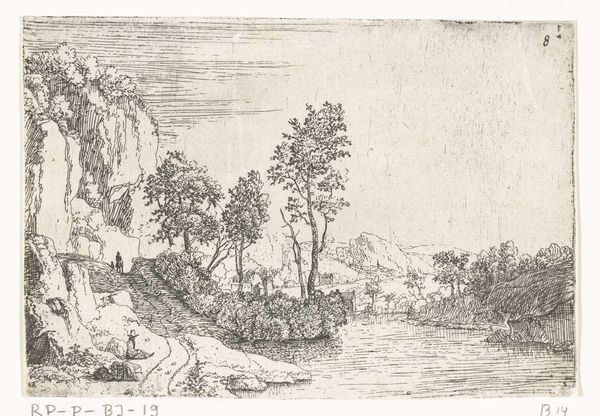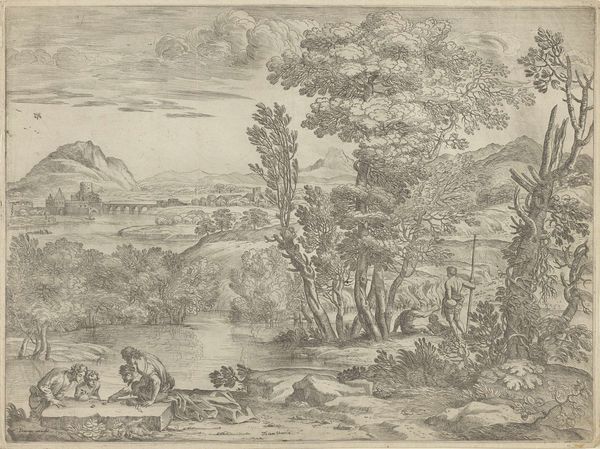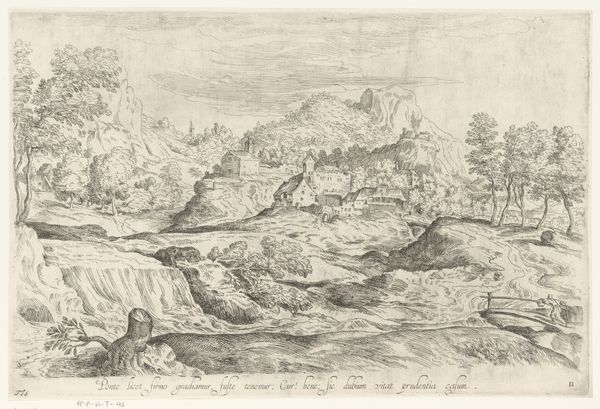
print, engraving
#
baroque
# print
#
landscape
#
waterfall
#
engraving
Dimensions: height 231 mm, width 329 mm
Copyright: Rijks Museum: Open Domain
Johannes Glauber made this drawing of the Great Waterfall of Chartreuse with pen and brown ink, heightened with white, around 1700. The composition of the drawing is structured around contrasting horizontal and vertical lines. The waterfall’s tiered cascades create strong horizontal bands, while the rugged rock formations, trees, and distant mountains provide a series of vertical accents. Glauber’s use of hatching and cross-hatching adds depth, giving a three-dimensional feel to the scene. The drawing reflects an emerging aesthetic interest in the sublime qualities of nature. Rather than presenting an idealized landscape, Glauber captures the raw, untamed character of the natural world. Ultimately, Glauber’s drawing invites us to consider the relationship between human perception and the natural world. It's a reminder that our understanding of landscapes is always mediated through cultural and aesthetic frameworks.
Comments
No comments
Be the first to comment and join the conversation on the ultimate creative platform.
